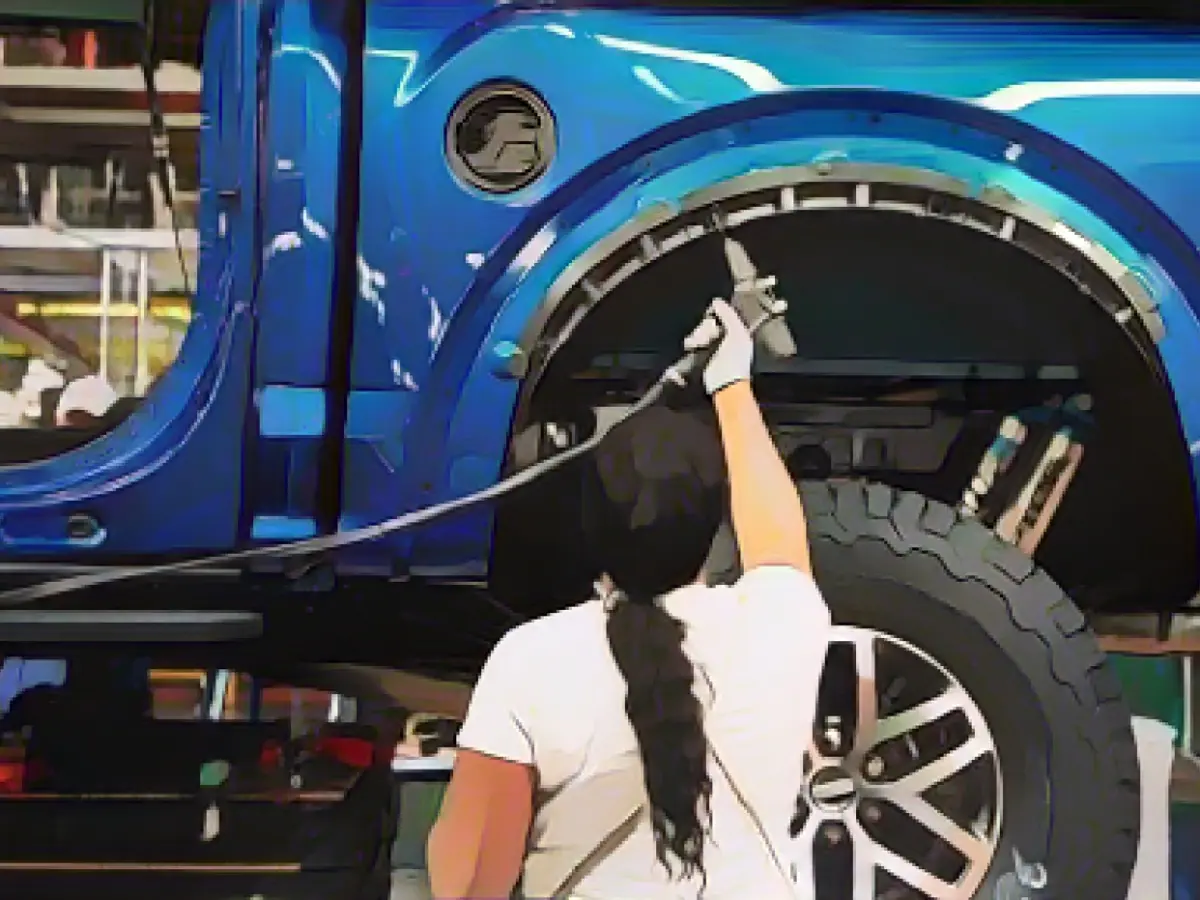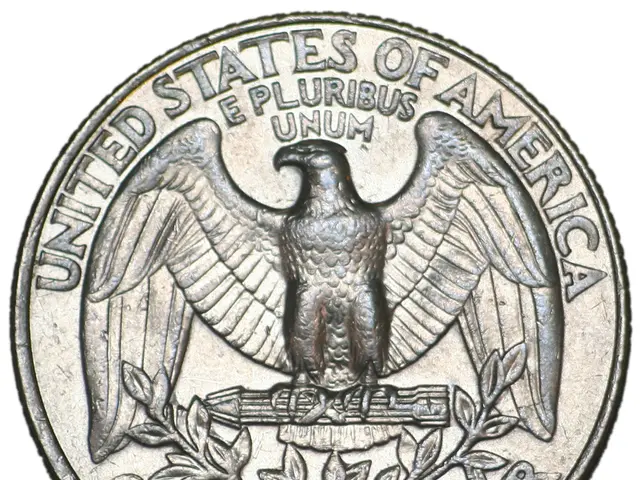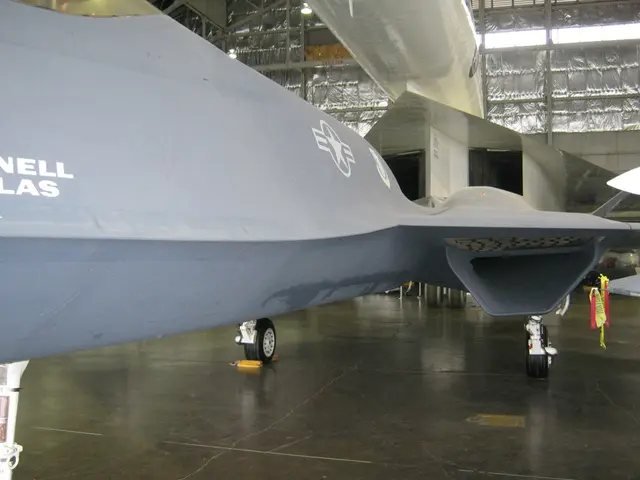Biden's ambitious plan to shift towards electric vehicles faces resistance from an unlikely source: the United Auto Workers (UAW), a long-time political ally of Biden's.
Auto industry insiders told CNN that unions have long harbored concerns about the transition to electric cars, as the manufacturing of these vehicles requires around 30% less labor compared to traditional cars with internal combustion engines. UAW President Ray Curry expressed concerns about the impact on their members, the appearance of these products, and the potential sales of these products in August, emphasizing that he wanted these vehicles to be built by UAW workers in Detroit.
Making American cars more environmentally friendly is a central component of Biden's economic and climate agenda, and major US automakers are already planning for a future dominated by electric cars. General Motors (GM) announced in January that it aims to have 100% emission-free vehicles on sale by 2035. Ford also announced in May that 40% of its vehicle sales would be electric vehicles by 2030.
However, the transition will not be easy; gasoline-powered cars are responsible for 29% of total US greenhouse gas emissions, while electric cars and plug-in hybrids account for just 2% of US car sales. According to an UAW analysis, electric cars and plug-in hybrids together made up only 2.6% of global car sales in 2019.
Harley Shaiken, a labor expert at the University of California, Berkeley, described this as the most significant change in the industry since Henry Ford introduced the assembly line.
"In the past, unions have accepted new technologies but have always worked hard to ensure that workers benefit from them," Shaiken told CNN.
Large portions of manufacturing can be made simpler for electric cars since they have fewer parts. Gasoline-powered cars and their drivetrains (the engines that convert gasoline into energy and power the vehicle) require the assembly of several separate components. According to a Department of Energy analysis, electric cars with batteries can be driven more efficiently and require less energy compared to their gasoline-powered counterparts.
Shaiken pointed out that concerns about climate change and fossil fuel emissions are secondary for many union members compared to job security. Workers may be more concerned about earning enough money to support their families and send their children to college.
Marick Masters, a professor at Wayne State University and an expert on UAW labor practices, told CNN that tens of thousands of auto workers are involved in the production of internal combustion engines in Indiana, Michigan, and Ohio. With electric cars requiring fewer parts and less labor, the natural question arises as to what the impact of this shift on employment will be.
"There is also concern about wages and benefits at these new companies and the new jobs that will be created," Masters said, referring to well-known electric vehicle companies like Tesla (TSLA), which produces the majority of electric vehicles made in America and is generally perceived as anti-union.
Negotiating a compromise between unions, automakers, and environmental groups has proved challenging for Biden before he announced his decision in August.
"It was a bit challenging, and that shouldn't surprise anyone," a source close to the negotiations told CNN. "As the market evolves, UAW sees that auto manufacturers are seeking creative ways to avoid negotiations with the union."
To facilitate the transition, the United Auto Workers is advocating for tax incentives for consumers to buy union-made electric vehicles, a proposal included in the budget reconciliation bill currently before Congress. A Senator Debbie Stabenow, D-Mich., proposed amendment would offer a $7,500 tax credit to help consumers buy electric cars and a $2,500 additional credit for cars made in the US. Additionally, another $2,500 credit would be offered for cars made by unionized labor.
With the proposed changes passing the budget reconciliation bill, consumers purchasing union-made and American-made electric cars would potentially qualify for a tax credit of up to $12,500.
"With the consumer tax credit for electric cars, we want to promote domestic and union manufacturing," said Congressman Dan Kildee, D-Mich., to CNN. "If we're not ahead of the curve, Americans might buy electric cars made overseas." Kildee added that if the focus is on promoting domestic electric car production and consumer demand, we can ensure we have American manufacturing jobs.
The Biden administration supports the incentive, but there's no guarantee that the intense negotiations in Washington will survive until the end of the month. Two moderate Democrats in the Senate, Senators Joe Manchin and Kyrsten Sinema, have openly opposed the $3.5 trillion goal, with Manchin recently calling for a "pause" in the negotiations.
A democratic congressman said that the Congress needs to do more than just offer better tax incentives for electric cars to gain traction on the US market. He also suggested financing charging stations, making it as easy for customers to charge their electric cars as it is to fill up with gas.
"What we haven't done is create a comprehensive plan to support it, which is why I'd really like to see us move forward," Rep. Gwen Moore, D-Mich., told CNN.
Biden aims for 50% electric vehicle adoption by 2030, and UAW President Stephen Curry has been cautious about setting strict targets for electric vehicles. However, union leaders are aware that the shift towards electrification is coming quickly.
"It's coming, it's inevitable," Bernie Ricke, UAW Local 600 president, told CNN. "I don't think anyone could have predicted how fast it would come, so we want our members to be the ones leading the way."
When announcing the plan in August, Biden was surrounded by union officials, including UAW Local 600 President Rick, who oversees the assembly of the full-electric Ford F150 Lightning in Dearborn, MI. The program begins in 2022 with the assembly of the F150 Lightning, as well as a hybrid truck and two internal combustion engines.
Rick told CNN that his members are concerned about how the shift to electric cars will impact their jobs, and they value not just constructing cars but also manufacturing batteries and other components for electric cars.
Union leaders praised Biden's union-friendly statements but are relying on the Democratic Party's promises, both in Congress and the White House, to produce more union-made electric cars through tax incentives – but this is far from a guarantee.
Importantly, the unions do not want to be left out of the discussions about future cars.
"We're not going to back down and avoid talking about this issue," Curry told CNN. "We will be a part of the dialogue."








